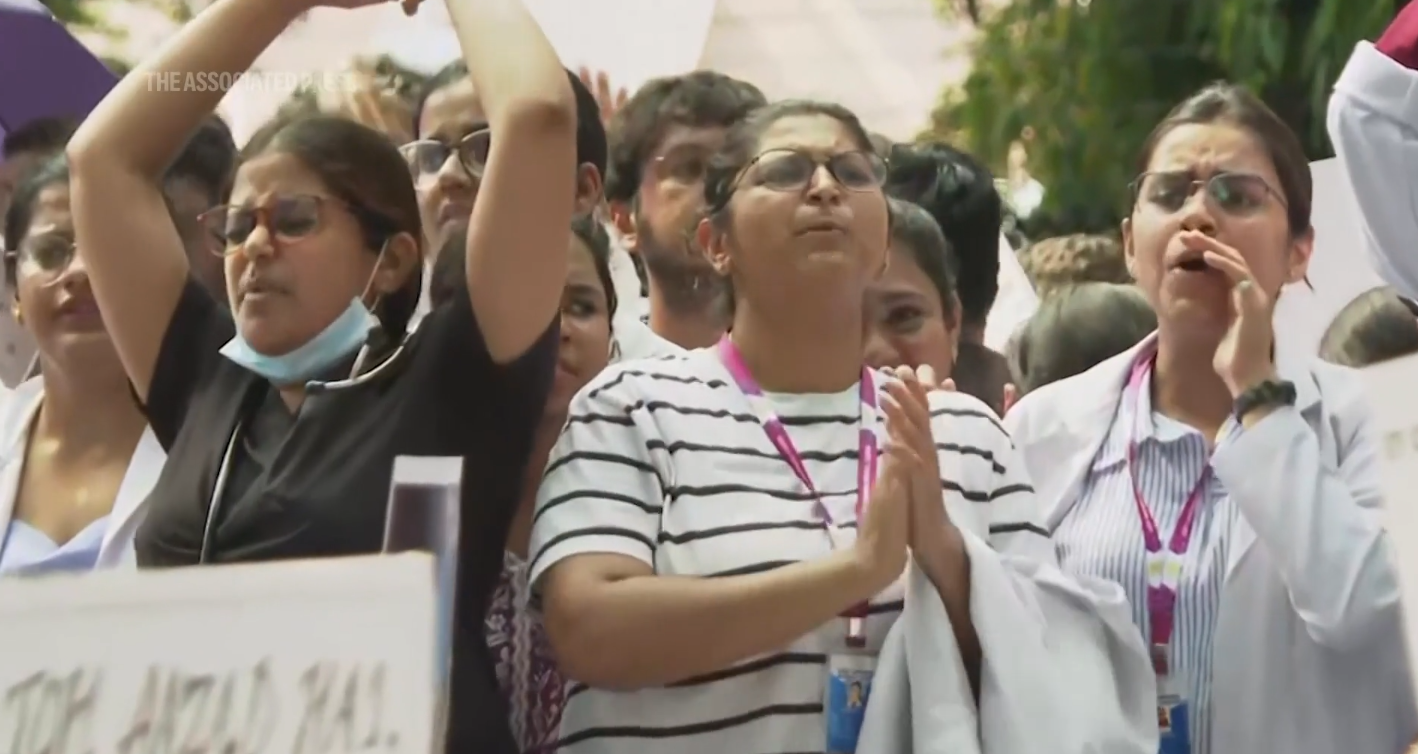Protests grow in India over the rape and killing of a doctor at a state-run hospital

NEW DELHI (AP) — Thousands of people marched through various Indian cities Friday to protest the rape and murder of a trainee doctor at a government hospital, demanding justice and better security at medical campuses and hospitals.
NEW DELHI (AP) — Thousands of people marched through various Indian cities Friday to protest the rape and murder of a trainee doctor at a government hospital, demanding justice and better security at medical campuses and hospitals.
Demonstrators held signs calling for accountability for the woman’s rape and killing as they gathered near Parliament in New Delhi. Similar protests were held in the eastern city of Kolkata — the capital of West Bengal state where the killing took place — and other Indian cities like Mumbai and Hyderabad.
The protests, which have generally been peaceful, began Aug. 9 when police discovered the bloodied body of the 31-year-old trainee doctor at the state-run R.G. Kar Medical College and Hospital’s seminar hall in Kolkata.
An autopsy later confirmed sexual assault, and a police volunteer was detained in connection with the crime. The family of the victim alleged it was a case of a gang rape and more were involved. State government officers who first began investigating the case have been accused of mishandling it. Police later handed the case to federal investigators following a court order. In the days since, mounting anger has boiled over into nationwide outrage and stirred protests over violence against women. The protests have also led thousands of doctors and paramedics to walk out of some public hospitals across India and demand a safer working environment.
Sexual violence against women is a widespread problem in India. In 2022, police recorded 31,516 reports of rape — a 20% increase from 2021, according to the National Crime Records Bureau.
Many cases of crimes against women go unreported in India due to stigma surrounding sexual violence, as well as a lack of faith in the police. Women’s rights activists say the problem is particularly acute in rural areas, where the community sometimes shames victims of sexual assault and families worry about their social standing. Richa Garg, a doctor who was part of the protests Friday in New Delhi, said she no longer felt safe at her workplace.
“As a woman, it boils my blood. The culprits of this crime should be found immediately … and our workplaces should be made safer,” she said.
On Wednesday night, the hospital where the trainee doctor was killed was attacked. Police did not identify who was behind the rampage, but said they have arrested 19 so far.
The Indian Medical Association, the country’s largest grouping of medics, called late Thursday for a “nationwide withdrawal of services,” except essential services, for 24 hours starting Saturday.
“Doctors, especially women are vulnerable to violence because of the nature of the profession. It is for the authorities to provide for the safety of doctors inside hospitals and campuses,” the IMA said in a statement issued on the social media platform X.
Political parties, Bollywood actors and other high profile celebrities have also voiced shock at the crime and called for stricter punishments for those who commit them.
“Monstrous behavior against women should be severely and promptly punished,” Prime Minister Narendra Modi said Thursday in an address to the nation on its 78th Independence Day. For many, the gruesome nature of the attack has invoked comparisons with the horrific 2012 gang rape and killing of a 23-year-old student on a New Delhi bus. The attack galvanized massive protests, sometimes violent, and inspired lawmakers to order harsher penalties for such crimes, as well as the creation of fast-track courts dedicated to rape cases. Under pressure, the government also introduced the death penalty for repeat offenders.
The rape law amended in 2013 also criminalized stalking and voyeurism and lowered the age at which a person can be tried as an adult from 18 to 16.